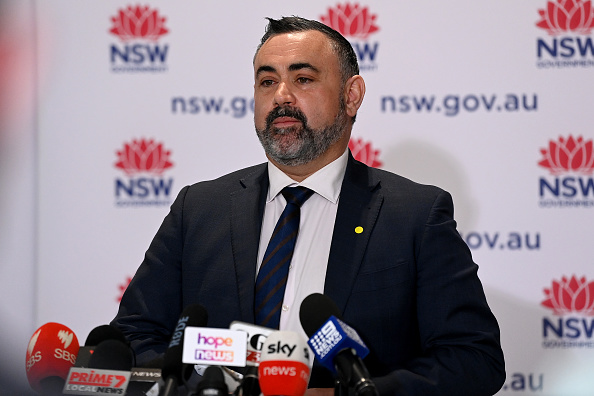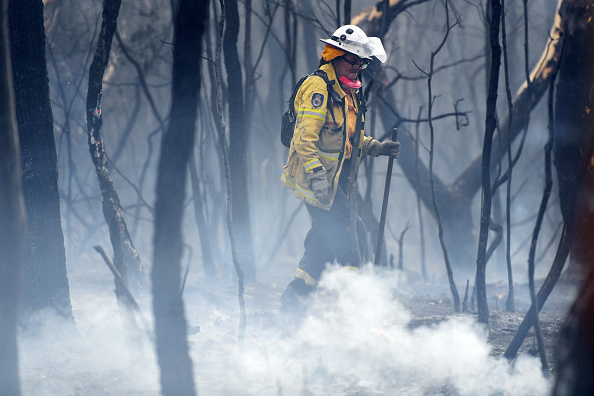Blue Mountains City Council Mayor, Mark Greenhill says a damning assessment of the Department of Regional NSW’s bushfire recovery grants process by the NSW Auditor-General has reaffirmed his assessment of the system.
In a report released today, NSW Auditor-General, Margaret Crawford, found the Department’s process for fast-tracking grants in the Bushfire Local Economic Recovery Program (BLER Fund) “lacked integrity”.
The BLER program was created after the 2019–20 Black Summer bushfires and committed funding to bushfire affected areas. It was co-funded by the Commonwealth and NSW governments.
Mayor Greenhill said Blue Mountains City Council “did not receive a single cent from the first stage of the grants program”, despite submitting more than 20 shovel-ready projects.

Twenty six of the first-round grants went to Coalition electorates and one to a location held by an independent.
“The report by the Auditor General today has confirmed what we said at the time,” Mayor, Greenhill said.
“In the first round of bushfire grant funds, the rules were changed in the office of the then Deputy Premier to exclude the Blue Mountains community and other non-coalition areas.
“Our recovery experience, following those devastating bushfires, was denigrated by a Liberal-National government so debased it was prepared to politicise disaster recovery.
“Trish Doyle MP and Susan Templeman MP stood shoulder to shoulder with me in calling this out, and together we intend to hold this awful State Government to account.”
The Auditor-General found:
- The Department of Regional NSW did not effectively administer the Fast-Tracked stream of the BLER;
- The administration process lacked integrity, given it did not have sufficiently detailed guidelines and the assessment process for projects lacked transparency and consistency;
- At the request of the Deputy Premier’s office, a $1 million threshold was applied, below which projects were not approved for funding;
- This threshold resulted in a number of shortlisted projects in areas highly impacted by the bushfires being excluded, including all shortlisted projects located in Labor Party-held electorates;
- The department’s administration of the SDG stream had a detailed and transparent assessment process. However, conflicts of interest were not effectively managed.

Mayor Greenhill said the application of the $1 million minimum threshold by former Deputy Premier, John Barilaro, resulted in the exclusion of three highly-impacted Local Government Areas in Labor-held electorates, including Blue Mountains City Council.
“After the devastation members of our community experienced, during and after the Black Summer bushfires, I am horrified to know that our own State Government acted in this way when so many were hurting,” he said.
Ms Crawford said Mr Barilaro’s late decision to eliminate any project under $1 million removed all hope for projects in ALP-held areas.
The Auditor-General made five recommendations to ensure that for all future grant programs, the Department:
- Establishes and follows guidelines that align with relevant good practice guidance
- Ensures a communications plan is in place, including the communication of guidelines to potential applicants
- Ensures staff declare conflicts of interest prior to the commencement of a grants stream, and that these conflicts of interest are recorded and managed
- Ensures regular monitoring is in place as part of funding deeds
- Documents all key decisions and approvals in line with record keeping obligations.
In acknowledging the report recommendations in a letter to the Audit Office, Department of Regional NSW Secretary, Rebecca Fox wrote: “In terms of the projects that were not funded in the fast-track round (including some excluded due to the $1million threshold), many of these were subsequently funded in other programs that were in simultaneous development with the fast-tracked process and were better suited to those types of projects.”
“It is also noted that the overwhelming majority of bushfire impact was in Government held electorates and therefore the majority of funding in early fast-tracked rounds would flow to those communities – as required by the national Local Economic Recovery Fund criteria of ‘balance and need’,” she wrote.
Read the Auditor-General’s full report via this link.


